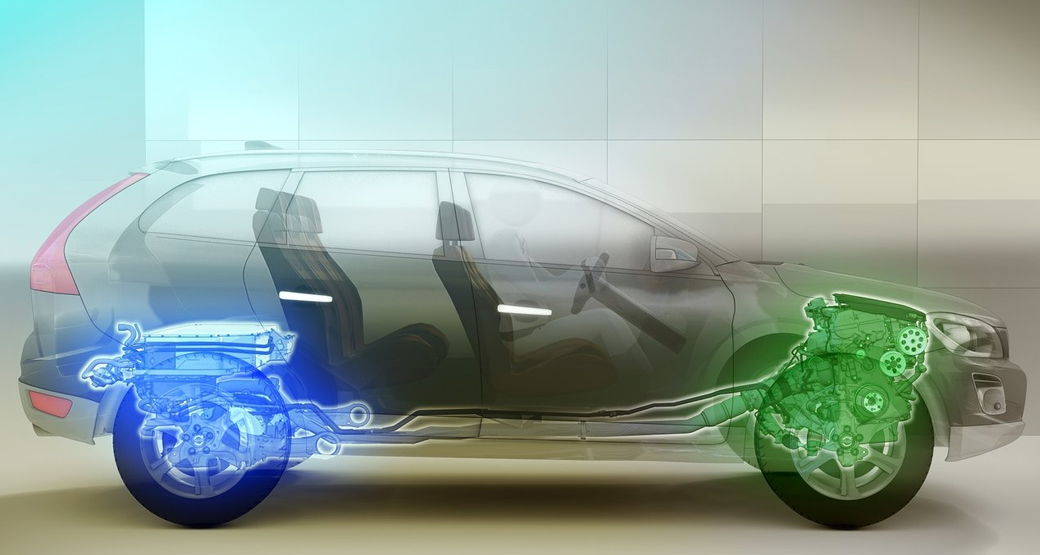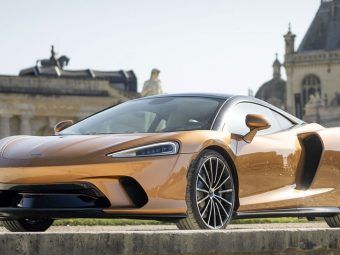By Peter Fitch, October 30, 2015
 One of the most important choices facing fuel-conscious drivers is whether to purchase a diesel or a hybrid car. These are often the go-to options for drivers who want increased fuel efficiency and long-term savings. But choosing between the two can be difficult. Which option maximises fuel efficiency while maintaining performance? Which is more affordable? Which is right for you? This guide will help you answer these questions.
There are three main things to consider when choosing between diesel and hybrid cars: where and how you drive, the financial impact, and the environmental impact. Carefully assessing these aspects of diesel and hybrid cars will ensure that you make the right choice for you.
Where and how you drive
One of the most important choices facing fuel-conscious drivers is whether to purchase a diesel or a hybrid car. These are often the go-to options for drivers who want increased fuel efficiency and long-term savings. But choosing between the two can be difficult. Which option maximises fuel efficiency while maintaining performance? Which is more affordable? Which is right for you? This guide will help you answer these questions.
There are three main things to consider when choosing between diesel and hybrid cars: where and how you drive, the financial impact, and the environmental impact. Carefully assessing these aspects of diesel and hybrid cars will ensure that you make the right choice for you.
Where and how you drive
 The cars themselves aren’t the only things to consider when making this decision. Your driving habits play a key role in determining which type of car is better for you. Diesel and hybrid fuel efficiency – one of the main benefits of these two types of cars – depends on where and how you drive. In general, diesel cars are more efficient for motorway driving and hybrids cars are more efficient for urban driving. This difference in performance is due to how the cars’ systems operate. Hybrids, with their dual combustion engine and electric motor systems, maximise efficiency in start-stop driving conditions. Their regenerative braking systems ensure that the battery recovers energy that would otherwise be lost during repeated braking. Diesel cars, on the other hand, are best suited to long distance driving, which takes advantage of their powerful and efficient fuel combustion engines. Of course, both diesel and hybrid cars can be driven in all environments. However, driving a car in the environment for which it is best suited will result in maximum fuel efficiency.
Financial impact
The cars themselves aren’t the only things to consider when making this decision. Your driving habits play a key role in determining which type of car is better for you. Diesel and hybrid fuel efficiency – one of the main benefits of these two types of cars – depends on where and how you drive. In general, diesel cars are more efficient for motorway driving and hybrids cars are more efficient for urban driving. This difference in performance is due to how the cars’ systems operate. Hybrids, with their dual combustion engine and electric motor systems, maximise efficiency in start-stop driving conditions. Their regenerative braking systems ensure that the battery recovers energy that would otherwise be lost during repeated braking. Diesel cars, on the other hand, are best suited to long distance driving, which takes advantage of their powerful and efficient fuel combustion engines. Of course, both diesel and hybrid cars can be driven in all environments. However, driving a car in the environment for which it is best suited will result in maximum fuel efficiency.
Financial impact
 While it depends on the exact model, hybrids tend to be more expensive upfront than diesel cars. Initial purchase costs for hybrid cars are usually around 20% higher than the equivalent non-hybrid petrol and diesel models. This increased cost reflects the complexity of hybrid vehicles, particularly the hybrid drivetrain, which requires a large, high quality battery. Additionally, hybrids that have the option to operate solely on electric power are usually more expensive than those that cannot. These initial prices are likely to drop over time, but studies predict that hybrids will not be cheaper than their conventional counterparts until 2030.
Though hybrids are more expensive upfront, they may be eligible for government grants to cover some of the purchase costs. Currently, over 30 models are eligible for grants of up to £5,000 under the ‘Plug-in Car and Van Grants’ scheme, which is set to run until at least February 2016 and potentially much longer. There are also additional financial benefits that certain hybrid models may qualify for, including London congestion charge exemption and vehicle tax exemption.
Even though they are cheaper than hybrids, diesel cars still command higher prices than their petrol counterparts, with many manufacturers requesting an additional £1,000-£2,000 for equivalent models.
Fuel prices are another key area to consider. Historically, diesel fuel has been more expensive than petrol. However, in July 2015, diesel became cheaper than petrol for the first time in 14 years, due to decreasing wholesale diesel prices. This may change as prices fluctuate, but still indicates a significant shift in the market. Hybrid fuel costs are significantly lower as they use much less fuel. Charging a fully electric car to drive 100 miles costs around £2 to £3. Filling up a petrol or diesel car the equivalent amount costs around £12 to £18. However, hybrids are not fully electric vehicles, so they still require some fuel; that cost depends on the model, as there are both diesel-electric and petrol-electric hybrids.
Both diesel and hybrid cars often provoke anxiety about maintenance costs. Diesel cars’ complex systems can increase mechanics’ fees or may require expensive special parts. Hybrid batteries can accrue significant replacement costs, although there is evidence to suggest that they are often very reliable.
In terms of car insurance for hybrid and diesel vehicles, the costs will differ depending on the insurance provider and the vehicle model.
Environmental Impact
While it depends on the exact model, hybrids tend to be more expensive upfront than diesel cars. Initial purchase costs for hybrid cars are usually around 20% higher than the equivalent non-hybrid petrol and diesel models. This increased cost reflects the complexity of hybrid vehicles, particularly the hybrid drivetrain, which requires a large, high quality battery. Additionally, hybrids that have the option to operate solely on electric power are usually more expensive than those that cannot. These initial prices are likely to drop over time, but studies predict that hybrids will not be cheaper than their conventional counterparts until 2030.
Though hybrids are more expensive upfront, they may be eligible for government grants to cover some of the purchase costs. Currently, over 30 models are eligible for grants of up to £5,000 under the ‘Plug-in Car and Van Grants’ scheme, which is set to run until at least February 2016 and potentially much longer. There are also additional financial benefits that certain hybrid models may qualify for, including London congestion charge exemption and vehicle tax exemption.
Even though they are cheaper than hybrids, diesel cars still command higher prices than their petrol counterparts, with many manufacturers requesting an additional £1,000-£2,000 for equivalent models.
Fuel prices are another key area to consider. Historically, diesel fuel has been more expensive than petrol. However, in July 2015, diesel became cheaper than petrol for the first time in 14 years, due to decreasing wholesale diesel prices. This may change as prices fluctuate, but still indicates a significant shift in the market. Hybrid fuel costs are significantly lower as they use much less fuel. Charging a fully electric car to drive 100 miles costs around £2 to £3. Filling up a petrol or diesel car the equivalent amount costs around £12 to £18. However, hybrids are not fully electric vehicles, so they still require some fuel; that cost depends on the model, as there are both diesel-electric and petrol-electric hybrids.
Both diesel and hybrid cars often provoke anxiety about maintenance costs. Diesel cars’ complex systems can increase mechanics’ fees or may require expensive special parts. Hybrid batteries can accrue significant replacement costs, although there is evidence to suggest that they are often very reliable.
In terms of car insurance for hybrid and diesel vehicles, the costs will differ depending on the insurance provider and the vehicle model.
Environmental Impact
 While diesel cars generally produce lower carbon dioxide, carbon monoxide and hydrocarbon emissions, they are not without their negative environmental characteristics. Diesel engines emit greater levels of nitrogen oxide and nitrogen dioxide, which damage air quality, particularly in urban areas. Contrary to popular belief, hybrids are not environmentally perfect either. The most common hybrids on the market still use either petrol or diesel fuel and therefore produce some air pollutants. Taking a ‘well-to-wheel’ view of a hybrid car’s environmental impact complicates the picture further unless buyers have switched to a renewable energy provider, the pollution still happens at the coal- or gas-fired power stations providing the car’s electricity.
Ultimately, there is no definitive answer when it comes to buying diesel or hybrid. Each has its own benefits, which may differ in importance to you depending on your lifestyle and finances. The most important thing is to review all the information thoroughly before deciding. And once you decide, enjoy all the benefits your new car has to offer!
While diesel cars generally produce lower carbon dioxide, carbon monoxide and hydrocarbon emissions, they are not without their negative environmental characteristics. Diesel engines emit greater levels of nitrogen oxide and nitrogen dioxide, which damage air quality, particularly in urban areas. Contrary to popular belief, hybrids are not environmentally perfect either. The most common hybrids on the market still use either petrol or diesel fuel and therefore produce some air pollutants. Taking a ‘well-to-wheel’ view of a hybrid car’s environmental impact complicates the picture further unless buyers have switched to a renewable energy provider, the pollution still happens at the coal- or gas-fired power stations providing the car’s electricity.
Ultimately, there is no definitive answer when it comes to buying diesel or hybrid. Each has its own benefits, which may differ in importance to you depending on your lifestyle and finances. The most important thing is to review all the information thoroughly before deciding. And once you decide, enjoy all the benefits your new car has to offer!








